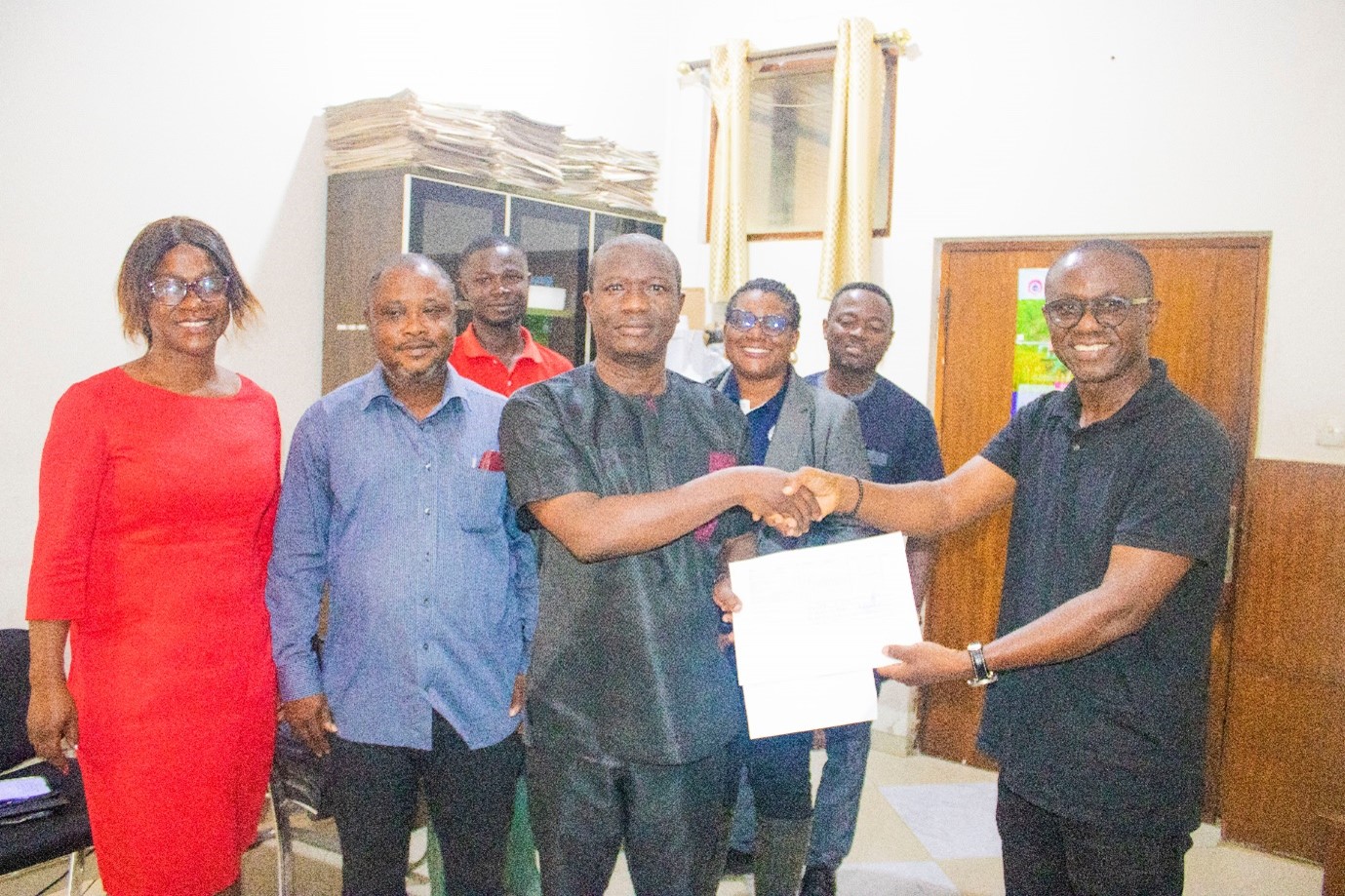“GHANA’S TOP AGRICULTURAL RESEARCH INSTITUTE GAINS ADVANCED IRRIGATION SYSTEM TO BOOST CROP INNOVATION”
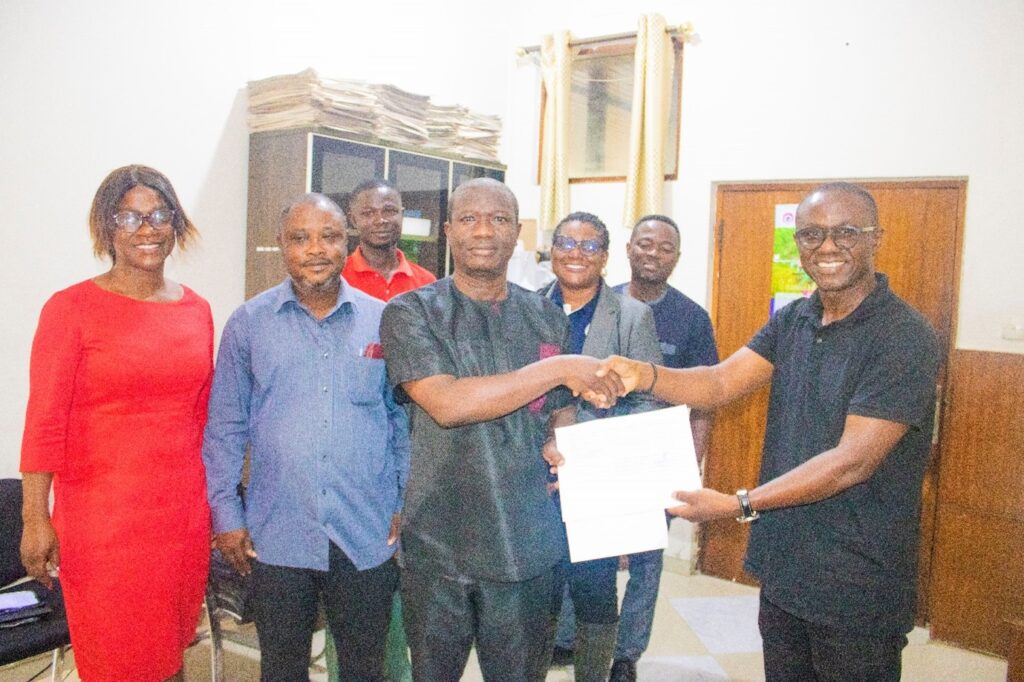
As part of facilities upgrade and mechanization improvement, a CGIAR-Crops to End Hunger program funded by Germany through GIZ, the CSIR-Crops Research Institute, Ghana’s leading agricultural research institution, has received a significant boost with the installation of a new irrigation infrastructure. The system will support the Institute trialling and nursery activities and ultimately support the development of improved crop varieties through breeding.
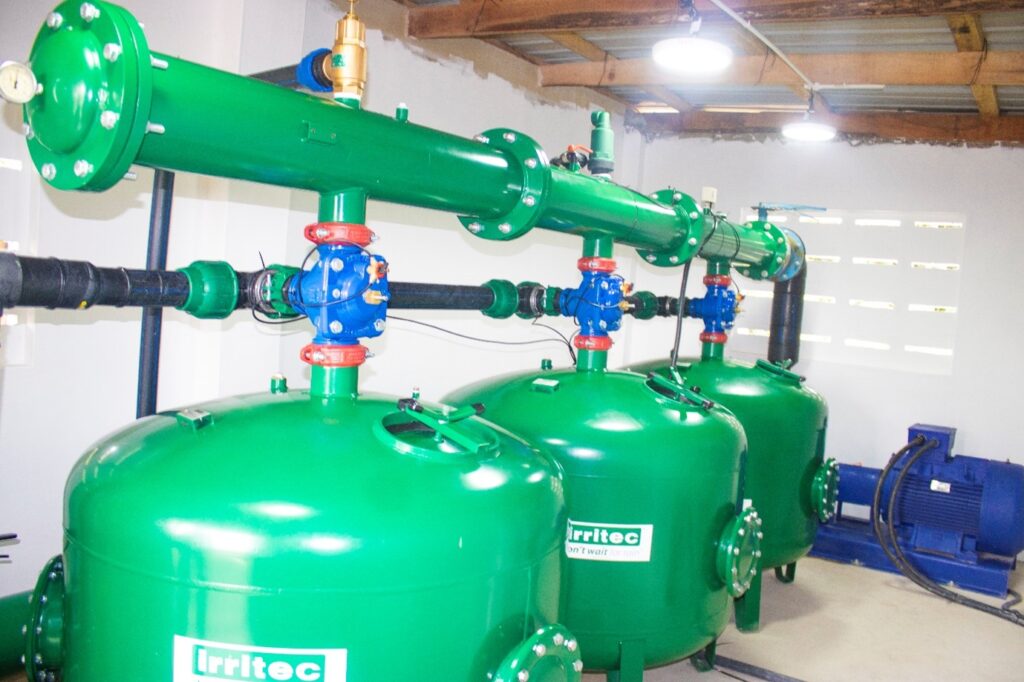
The start-of-the-art sprinkler irrigation system, valued at over USD 400,000, spans 28 hectares of land at the Institute’s main station at Fumesua and includes a fertigation unit – a system that allows the precise injection of fertilizers, soil amendments, water treatments, and other water-soluble products into an irrigation process. The system will go a long way to improve research activities at the Institute, especially the breeding of new crops varieties. The CSIR-CRI hosts over a dozen breeding programs covering cereals, legumes, root and tubers, fruits and vegetables, making it one of the leading centers for development of crop varieties and associated technologies in sub-Saharan Africa.
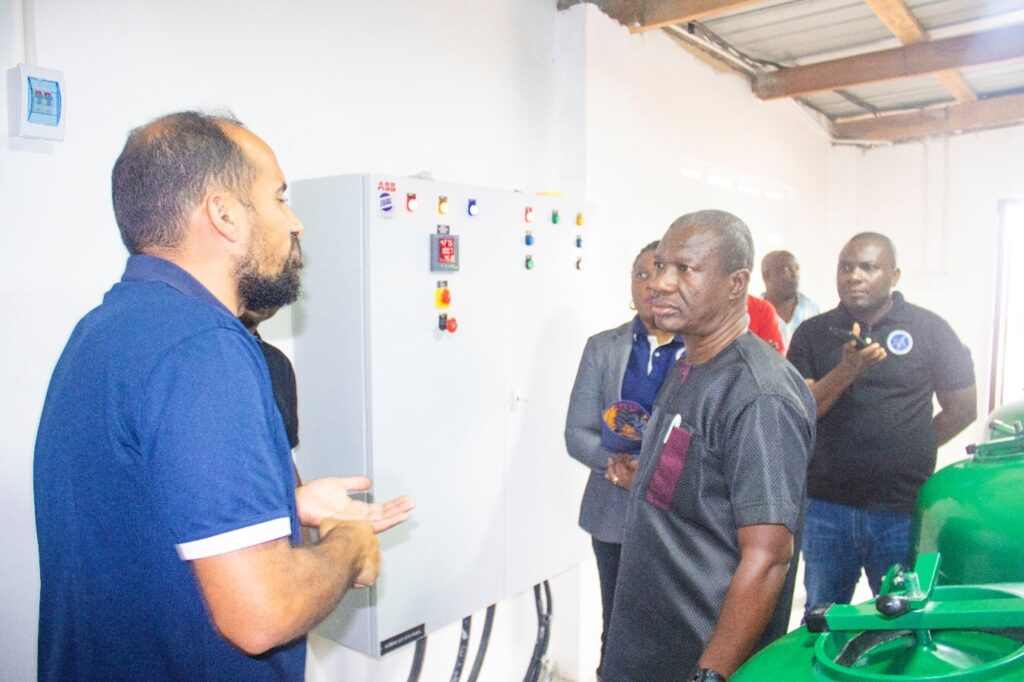
During a brief handing over ceremony, Dr. Ernest Baafi, the acting Director of the CSIR-Crops Research Institute, expressed his gratitude for the support from this CGIAR program. “This donation marks a significant milestone in our efforts to enhance food security and improve the livelihoods of farmers. With this advanced irrigation system, we will ensure that our research is conducted under optimal conditions, leading to more reliable and impactful results”, he said.
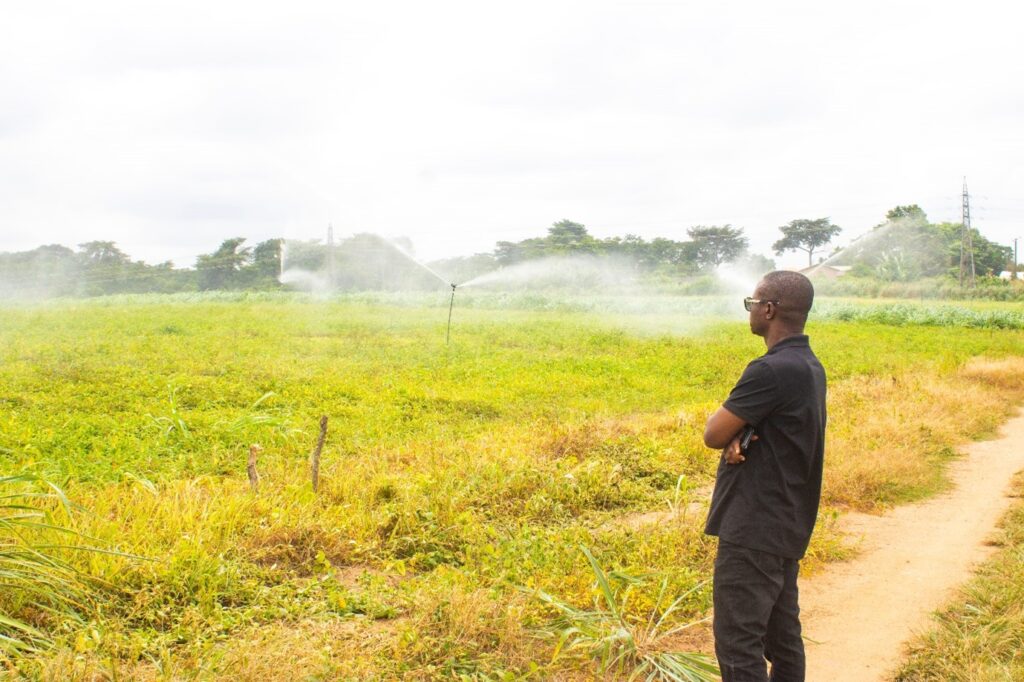
Mr Fares Al-Aaydi of Interplast Ghana, project vendors, officially handed over the system to CSIR-CRI. He explained that the infrastructure includes a pump house, advanced sprinklers and a fertigation unit for fertilizer application. A Chief Research Scientist and focal person for GI’s activities at the Institute, Dr. Maxwell Darko Asante, also expressed his deep appreciation to CGIAR and the program. He indicated that the irrigation infrastructure will accelerate the development of climate-smart and nutrient-dense varieties, and associated technologies as researchers can work all year round.
Resources:
- Learn more about Facilities Upgrade and Mechanization Improvement
- Lear more about CSIR-Crops Research Institute
- Learn more about the Trialling and Nursery Services available to CGIAR and partner breeders
Authors: Bernard Sakyiamah, Maxwell Darko Asante (PhD), Enoch Bobie Agyemang

